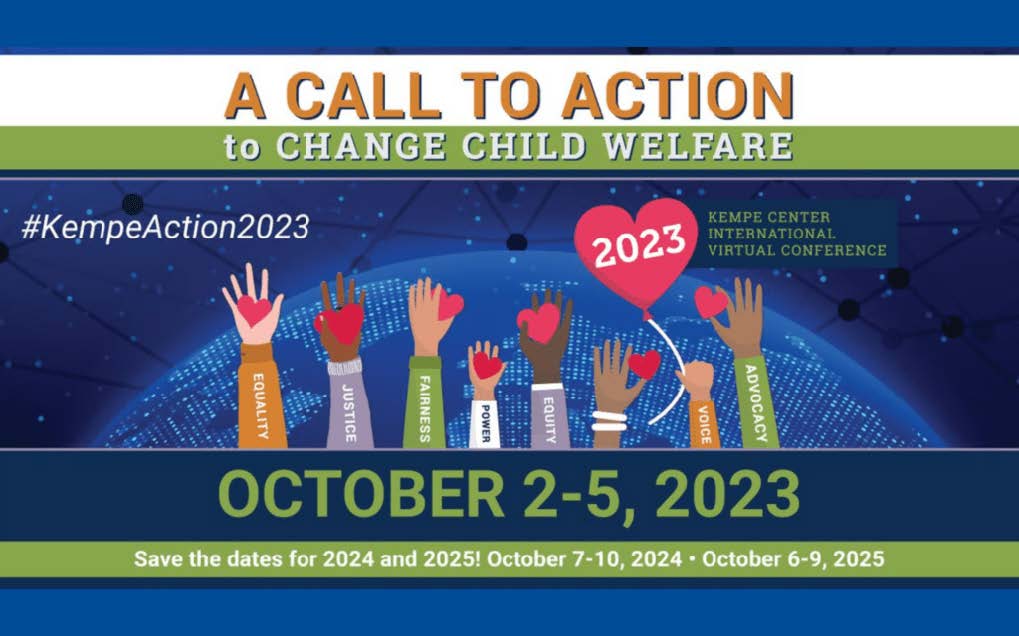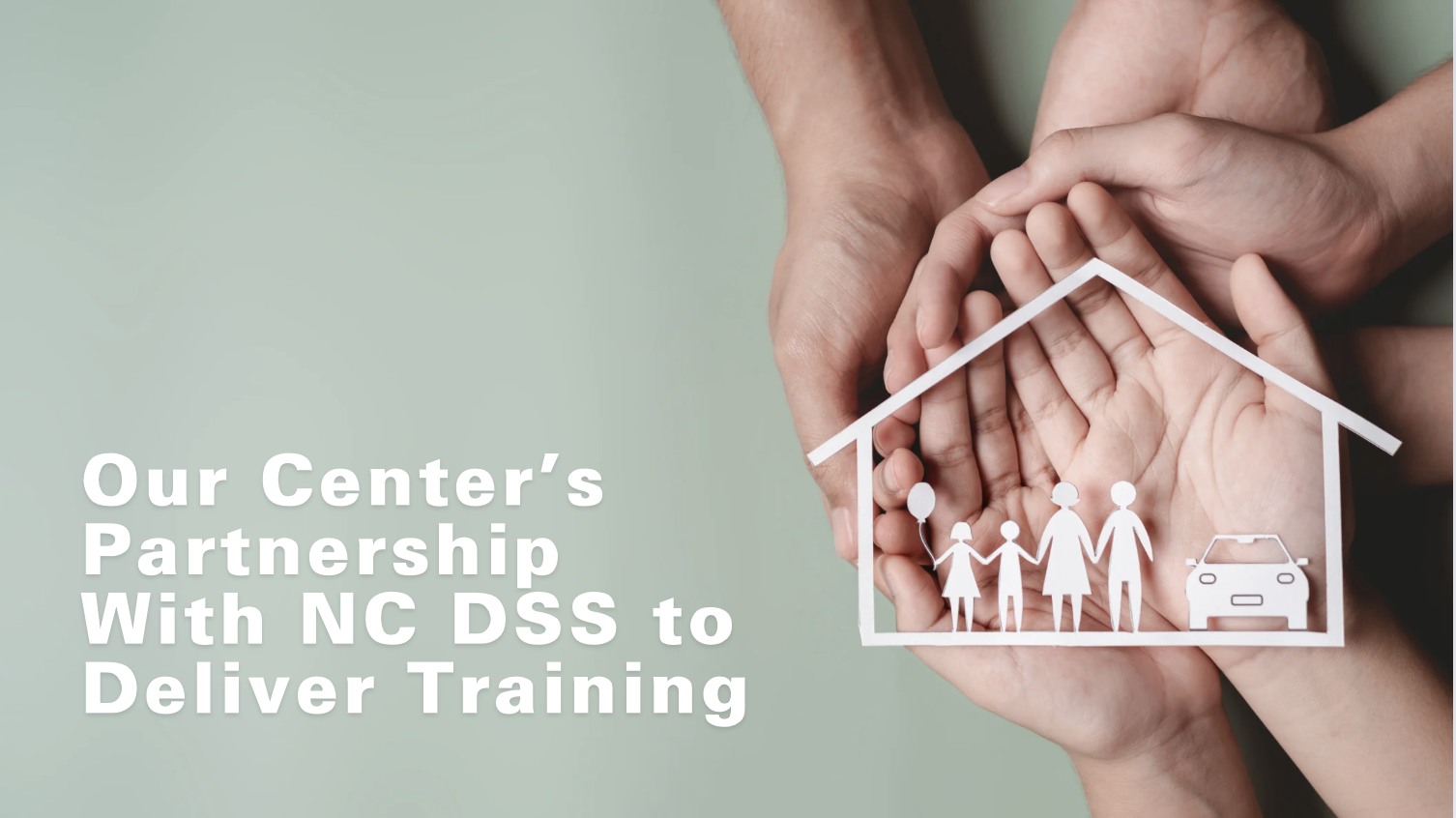The 2023 Kempe Conference

The annual Kempe Conference was held from October 2-5, 2023. Kempe was honored to host the 2023 International Virtual Conference: A Call to Action to Change Child Welfare. The purpose of this conference was to reconvene and expand the international community of practice with over 1,800 participants from over 25 countries. This conference featured keynote speakers and recorded sessions that can still be viewed if you wish you had been able to attend or simply want to check it out.
This year’s sessions included projects focused on developing new services and supports that respond to the unique needs of 2SLGBTQ+ children, youth and families; working with systems-involved youth who have been trafficked; building a comprehensive child maltreatment prevention framework; centering culture for transformative systems change; and so much more. A brief outline of each session, as well as a link to the recording, are included below; however, you do have to register through Kempe to be able access the recorded sessions.
The amazing keynote speakers and the incredible efforts of the social workers, researchers, and specialists who create these projects, spread awareness, educate others, and keep working toward a better future for our child welfare system made the 2023 Kempe Conference an overwhelming success.
“I learned so much that I will apply to both the work I do and to my personal life. The sessions I attended will stick with me for the rest of my life and impact how I make decisions and take action.” – Marissa Turner, CFACE Trainer
- 2SLGBTQ+ Disparity Mapping: Findings and Next Steps is a provincially-funded project that develops new services and supports that respond to the unique needs of 2SLGBTQ+ children, youth and families in Ontario’s child welfare system. After the presentation, a short discussion was held to inquire about next steps for transforming practice and improving outcomes.
- Beyond the 101: Working With Systems-Involved Youth Who Have Been Trafficked dives deeper into human trafficking of youth in the child welfare system. Human trafficking is a heinous crime that intersects with many other vulnerabilities and experiences. This session reviews how both labor and sex trafficking may be present with systems-involved youth but will focus on how child welfare workers and community partners can prevent and interrupt exploitation among this population.
- Brothers and Sisters: using FGDM principles & life story work to support siblingconnections was an interactive workshop that explored system-involved child and youth well-being. It also looked at embedded experience and family connections.
- Building a Comprehensive Child Maltreatment Prevention Framework with Family Partner Participation was an effort through the North Carolina Division of Social Services to convene a multidisciplinary workgroup to create a comprehensive framework to strengthen families and prevent child maltreatment. This framework aligns primary, secondary, and tertiary family support prevention and intervention services. Presenters will discuss how local programs engage families and promote leadership.
- Centering Culture for Transformative Systems Change was a guided group discussion around the components of race, structural oppression and social systems change. It also examined what has worked and what has not worked for organizations as a way to begin having discussion to create interconnectedness around mission and learning opportunities from colleagues and peers.
- Family First Policy & Practice: Supporting the Child Welfare Workforce in Prevention-Focused Practice is one of the most significant pieces of child welfare legislation passed in recent history. Our Family First continuous quality improvement (CQI) efforts in multiple child welfare jurisdictions identify critical points of EBP uptake that have implications on casework practice, engagement with EBP providers, and families. This session focused on mechanisms to support the child welfare workforce in making the shift to prevention.
- Navigating Childhood Trauma and Adoption: A Conversation for Empowering Resilience and Healing featured Beth Tyson, a distinguished childhood trauma consultant and bestselling author, in a thought-provoking conversation with Bethany Fraser, the esteemed host of The Adoptee Diaries and an adult, bi-racial adoptee with valuable lived experience. Whether you are a caregiver, practitioner, advocate, or someone with a personal connection to these matters, this session is designed to equip you with actionable tools and perspectives to create a positive impact on the lives of those affected by childhood trauma and adoption.
- The Mechanisms of Othering explained that othering is a frame that captures the many forms of prejudice and persistent marginality, but also explains and analyzes a set of common processes and mechanisms that engender Othering. Dr. John Powell shared the investigation and framework for Othering.
- Under-Utilization of Kin Guardianship and Perceptions of Racial Inequities in
Permanency Planning was an interactive session that highlighted the methods, findings, and policy, practice, and research implications of a mixed methods study of guardianship as a permanency option for children placed with kin/fictive kin in Illinois. - UNICEF USA Child Friendly Cities Initiative: Opportunities for a Community Based Primary Prevention is a framework to support local governments in advancing the well being of children through local policies, services, and actions using the UN Convention on the Rights of the Child as its foundation.


